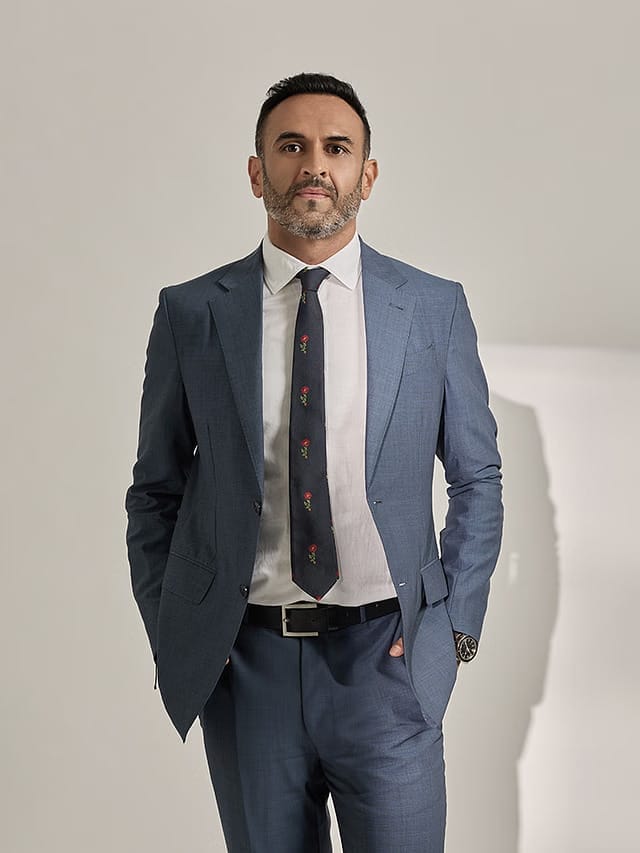by Zat Astha

Dipak Natali (Photo: Clement Goh)
In exactly five words, how would you describe what you do?
Using sports to change lives.
What would you say to a CEO who is not convinced about the positive impact of disability-inclusive hiring practices?
The biggest mistake we can make is thinking that diversity is a charitable act. Being inclusive to people with disabilities is not only the right thing to do but also good for business. Hiring inclusively is a definitive step to improving any firm’s ability to understand this new environment better.
In addition — and this is according to the Harvard Business Review — inclusion enhances the workplace and teams. Inclusive leaders are 17 per cent more likely to report high performance. The traits that distinguish inclusive leaders from others are humility, awareness of bias, curiosity about others, cultural intelligence, a visible commitment to diversity, and effective collaboration.
Given the great value of diversity, hiring persons with intellectual disabilities (PWIDs) should not be viewed simply as a check-in-the-box to fulfil an inclusion quota or be seen as an afterthought. Leaders need to recognise that PWIDs have the potential to contribute meaningfully to the workplace and with the right opportunities, can offer great skills and commitment to an organisation.


How should an organisation ensure the process is meaningful when meeting inclusion quotas?
Fostering a diverse workforce goes beyond recruitment practices, including hiring more disabled individuals. It requires a mindset shift towards embracing diversity in daily business operations. Effective recruitment should involve connecting with disability organisations and communities to tap into diverse talent pools.
The biggest mistake we can make is thinking diversity is a charitable act. – Dipak Natali On Why True Inclusivity Involves More Than Just Diverse Hiring
However, true inclusivity involves more than diverse hiring; it’s about creating a workplace where everyone feels confident and involved. Special Olympics advocates for Unified Leadership, teaching people without disabilities to create inclusive spaces for people with disabilities and enhancing inclusion in teams, organisations, and communities. This approach focuses on changing the environment, not just offering opportunities, which is key to true inclusion.
How can workplaces define “employment” for persons with disabilities to ensure their roles are substantial and career-oriented, not just symbolic or peripheral?


Dipak Natali (Photo: Clement Goh)
We need to recognise that diversity is not the same as inclusion. Meaningful employment for people with disabilities should focus on their value-add, not just their disability. Like all employees, PWIDs should be supported in their development and growth, albeit with potentially different journeys. Management approaches may vary, but the goal of employee progression remains constant.
Observations from Special Olympics show that, like other athletes, those with intellectual disabilities (ID) compete with tailored coaching sensitive to their learning styles. This approach is relevant in the workplace, where employers should be self-aware and adapt their interactions with PWIDs.
Ultimately, employees with ID, like anyone else, have the potential to develop. The key is to ensure they have equal opportunities to reach their full potential.




What effective support systems and accommodations can organisations provide to help integrate and advance the careers of employees with disabilities?
Creating a sense of belonging for people with disabilities (PWDs) involves fostering open, authentic conversations about their challenges. Employers should provide platforms for employees with and without intellectual disabilities to share experiences and jointly address workplace challenges. Diversity training for all employees can enhance understanding of a diverse workforce’s importance. A truly inclusive workplace allows PWDs to learn, thrive, and be respected.
When you look at the state of the world today, what is one thing that gives you hope?
I work with so many young people with and without ID who are learning about what it takes to be inclusive, not simply through study, analysis, or passive interaction but by walking the talk and immersing themselves fully in it. Many of them are proactively stepping out of their comfort zones by volunteering, interacting, initiating projects, and advocating alongside our athletes with ID. This makes me feel really positive about the future, despite the multitude of challenges we face.

